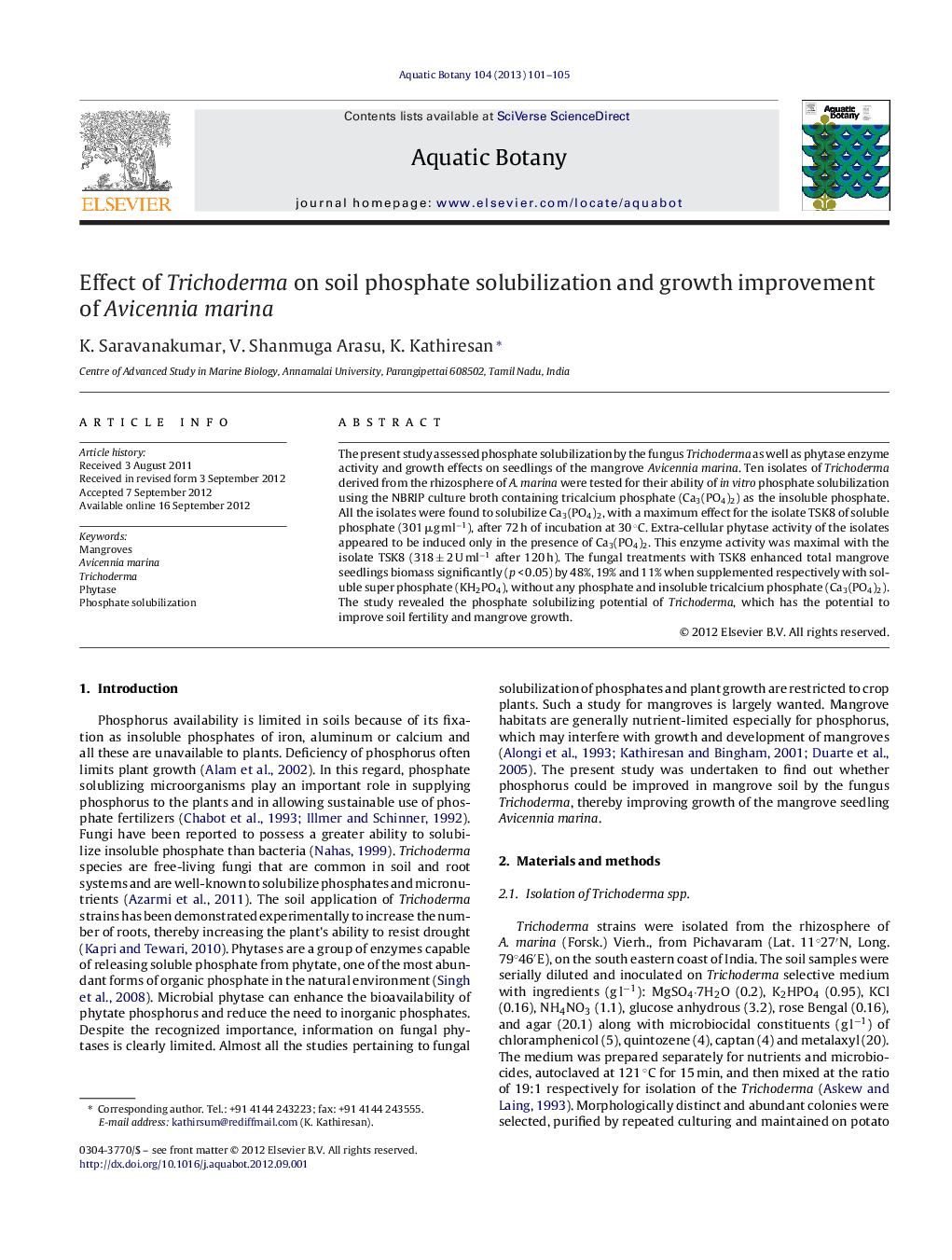| Article ID | Journal | Published Year | Pages | File Type |
|---|---|---|---|---|
| 4527971 | Aquatic Botany | 2013 | 5 Pages |
The present study assessed phosphate solubilization by the fungus Trichoderma as well as phytase enzyme activity and growth effects on seedlings of the mangrove Avicennia marina. Ten isolates of Trichoderma derived from the rhizosphere of A. marina were tested for their ability of in vitro phosphate solubilization using the NBRIP culture broth containing tricalcium phosphate (Ca3(PO4)2) as the insoluble phosphate. All the isolates were found to solubilize Ca3(PO4)2, with a maximum effect for the isolate TSK8 of soluble phosphate (301 μg ml−1), after 72 h of incubation at 30 °C. Extra-cellular phytase activity of the isolates appeared to be induced only in the presence of Ca3(PO4)2. This enzyme activity was maximal with the isolate TSK8 (318 ± 2 U ml−1 after 120 h). The fungal treatments with TSK8 enhanced total mangrove seedlings biomass significantly (p < 0.05) by 48%, 19% and 11% when supplemented respectively with soluble super phosphate (KH2PO4), without any phosphate and insoluble tricalcium phosphate (Ca3(PO4)2). The study revealed the phosphate solubilizing potential of Trichoderma, which has the potential to improve soil fertility and mangrove growth.
► The fungal strain TSK8 from mangrove sediment exhibited maximum phosphate solubilization. ► Incubation with Trichoderma increased shoot biomass by 33% in Avicennia marina. ► Trichoderma has the potential to improve soil fertility and mangrove growth.
